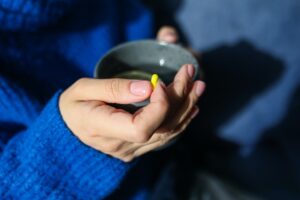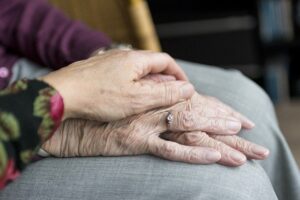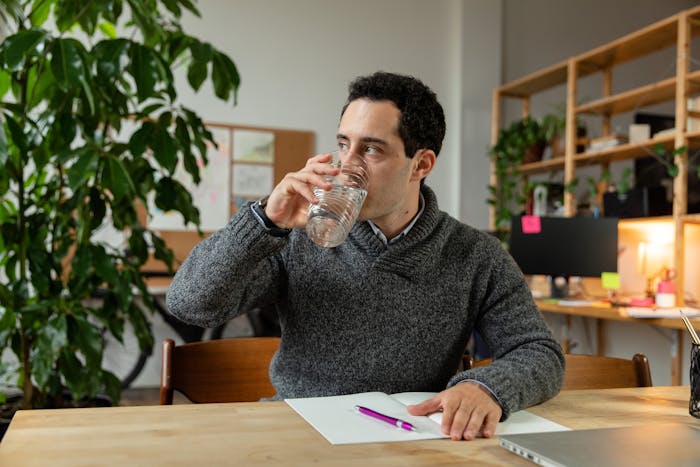Despite being one of England’s most popular seaside resorts and a place rarely associated with substance addiction, Skegness isn’t exempt from the UK’s mounting addiction concerns.
Both alcohol and drug-related disorders plague the town and its residents each year: many of whom must seek treatment at a drug and alcohol rehab in Skegness.
The most worrying statistics regarding Skegness come from the Lincolnshire County Council Drug Strategy Report.
The strategy’s deep dive into the county’s illicit drug use revealed that Skegness is one of the main hotspots for hazardous consumption.
In 2020, 210 individuals entered hospitals requiring treatment for drug poisoning: which is an increase of 23.5% from the previous year.
Harrowingly, the same year saw a 13% increase in drug-poisoning deaths compared to the number of individuals losing their lives in 2016/2017.
In response to these figures, the Safer Lincolnshire Partnership held a public survey in August 2021 and asked participants about their drug use.
Out of the 463 subjects, 1.60% stated that they “use drugs all of the time”, and 62.31% believed they live in an area where drugs are frequently used and/or supplied.
However, as with most of the UK, the number of individuals battling alcohol addiction in Skegness supersedes those using illicit drugs. [1]
A council report has noted that, in the entire Lincolnshire community, 25,000 people are thought to be problematic drinkers.
Within this figure,15,000 individuals are binge drinkers , and 5,000 are dependent drinkers. [2]
Get the support you need from a drug and alcohol rehab in Skegness by calling our team today on 0800 140 4690

Before seeking the help of a drug and alcohol rehab in Skegness, many individuals wish to understand their level of severity.
It is very common for people to even ask the question: “how do I know that I’m addicted?”.
Fortunately, addiction is viewed by the majority as a medical condition, and there are a plethora of diagnostic manuals to take advantage of.
If you’ve ever felt that you should cut down on your drinking, The CAGE Questionnaire is a simple screening tool used to assess possible issues with alcohol.
It acts as both an initial clinical assessment for GPs or psychiatrists and a self-assessment tool that can be used in the home.
The name CAGE is an acronym for the four questions it poses to subjects. These are categorised as Cut-down, Annoyed, Guilty, and Eye-opener.
Rather than simply asking someone how many drinks they consume, to which they might underestimate the number, CAGE questions are related to the emotions someone might be feeling if they drink regularly.
The four questions in the survey are:
Think you need the help of a drug and alcohol rehab in Skegness? Get it today by calling us on 0800 140 4690

The CAGE questions can also be modified to include drug use disorders.
This is known as The CAGE Adapted to Include Drugs, or CAGE-AID, and adapts the wording of questions to include drug use terms. These are:
1. Have you ever felt you should cut down on your drug use?
2. Have people annoyed you by criticising your drug use?
3. Have you ever felt guilty about your drug use?
4. Have you ever used drugs in the morning to stop withdrawal (eye-opener)?
Regardless of whether the subject is concerned about drug or alcohol use, answering “yes” to just one of these questions is a cause for concern.
While a score of two is considered clinically significant, individuals shouldn’t attempt to self-diagnose but should instead seek professional care.
If you’ve answered the CAGE/CAGE-AID questions and are concerned in any way or know someone who is, the time to reach out is now.
Here at Rehab 4 Addiction, we can facilitate your treatment at a drug and alcohol rehab in Skegness or give you free professional advice.
Please call our 24-Hour Helpline: 0800 140 4690

It’s not uncommon to find yourself in a situation where a friend, colleague, or family member is denying treatment in the form of a drug and alcohol rehab in Skegness.
Though their addiction may be visible to everyone around them, it can be difficult for SUD victims to overcome denial and accept professional help.
While situations like this can seem hopeless, a professionally structured intervention is often the most effective way of encouraging an individual to accept treatment.
Direct interventions involve family members and friends mindfully confronting the addicted individual and laying out a pre-arranged treatment plan.
The presence of a certified interventionist can optimise the success rate of these meetings and make sure conversations stay on track.
Interventionists are professional recovery advocates: including mental health clinicians, counsellors, and social workers.
This interventionist will be a non-judgemental guiding presence throughout the process: controlling the flow of discussion sympathetically.
This makes sure charged emotions are kept at bay when participants are covering some intense topics.
They’ll also make sure the logistical side of the intervention runs smoothly.
This will include organising a meeting place, liaising with participants, and pre-planning treatment that’s customised to suit the individual.
Please call our 24-Hour Helpline: 0800 140 4690

While mediating actual discussions, professionals often use the techniques of an intervention framework such as the modern take on old methods: the CRAFT method. [3]
Rather than forcing a confrontation between family and friends, a CRAFT intervention focuses on helping the addicted individual and their loved ones grow as a supportive network.
The model is centred on goal-setting, problem-solving, and self-care alongside other therapeutic activities to optimise communication and motivation.
Please call our 24-Hour Helpline: 0800 140 4690
 The cost of rehab in the UK can vary dramatically depending on the level of treatment, length of stay, and whether you are attending as an inpatient or outpatient.
The cost of rehab in the UK can vary dramatically depending on the level of treatment, length of stay, and whether you are attending as an inpatient or outpatient.
These modes of treatment are perhaps the most influential factor in deciding how much someone will pay at a drug and alcohol rehab in Skegness.
As an inpatient, you would be living on-site at a rehab clinic for the duration of treatment: which means comprehensively receiving meals, accommodation, and a variety of therapies.
On the other end of the spectrum, outpatients continue to live at home and simply meet the demands of their programme by attending therapy appointments.
Due to individuals remaining at home throughout their treatment, outpatient care costs less to facilitate and is therefore largely free on the NHS.
A combination of high demand and low funding means the NHS cannot afford to put patients through inpatient care, except for severe addictions.
As a result, outpatient care via the NHS is the most financially accessible and subsequently has the longest waiting lists of the two UK-based treatment options.
NHS outpatients can undergo treatment for their addiction unburdened by money worries, which makes it a popular option despite lengthy waiting times and inefficiency.
An alternative option is to treat your addiction at a private drug and alcohol rehab in Skegness: where clients can begin their recovery programme immediately.
At these centres, treatment programmes are often residential and are committed to providing high-quality facilities and personalised treatment for a cost.
Patients completing rehab residentially often stay for around 28-days: a time frame for which they can expect to pay between £7,000 and £14,000, depending on the clinic and location.
For the price, inpatients receive intensive, structured treatment that experts agree is the best way to recover from moderate or severe addictions.
Please call our 24 hour helpline on 0800 140 4690

In basic terms, the answer to this question is yes: many insurance providers in the UK will reimburse addiction treatment at a drug and alcohol rehab in Skegness.
However, the exact amount of money you can expect to get back will depend on the level of cover given by your plan and the unique policies of each company.
For example, employee health insurance or private health insurance might only cover the cost of treatment that is deemed “essential” to recovery: such as detox or therapies.
While some companies will only reimburse for a bout of outpatient treatment, others, such as Bupa, will cover the duration of an inpatient programme.
Once you have a carefully planned treatment plan (the details of which will be provided by Rehab 4 Addiction or the clinic directly), you should liaise with your insurance provider.
Once you’ve disclosed that you have a substance use disorder, they’ll be able to tell you what your particular plan covers you for.
Please call our 24 hour helpline on 0800 140 4690

While the Skegness area has a variety of self-help groups and organisations battling the effects of addiction, alcohol use disorders (AUD) remain prevalent.
It’s thought that there are around 25,000 hazardous drinkers in Lincolnshire: all of which could benefit from the guidance of professionals at a drug and alcohol rehab in Skegness. [2a]
Alcohol is a substance that causes serious physical addictions: requiring more intensive programmes that last between 28–90 days.
Please call our 24-Hour Helpline: 0800 140 4690

After patients receive a pre-admittance evaluation, they’ll begin a medicated detox in their comfortable rehab accommodation, surrounded by a professional team.
AUD sufferers must undergo medical supervision to help them recover safely, especially in the early stages when the risk of withdrawal is high.
Those with physical addictions like AUD are at risk of developing delirium tremens and seizures: which are part of a serious condition called Alcohol Withdrawal Syndrome (AWS).
To safely manage withdrawal and prevent AWS, patients will slowly flush alcohol from their bodies across a span of seven-to-ten days.
Please call our 24 hour helpline on 0800 140 4690

After being assessed by a psychiatrist, they’ll have the option to receive craving inhibitors like Naltrexone or Benzodiazepines to treat anxiety and prevent seizures.
Once they’ve completed detox, patients at rehab for alcohol can begin tackling the emotional and/or behavioural components of their addiction.
Please call our 24 hour helpline 0800 140 4690

Relapse prevention techniques such as CBT help sustain sobriety by changing the pattern of someone’s behaviour and helping them manage alcohol cravings.
CBT sessions at a drug and alcohol rehab in Skegness essentially treat the patient’s thoughts and actions to inspire meaningful change.
In a typical workshop, the patient relates a particularly difficult emotion, thought, or behaviour that is impeding their recovery.
Then, they’ll work with their CBT therapist to cultivate tools for self-help.
Please call our 24 hour helpline 0800 140 4690

According to Lincolnshire Council studies, cannabis is the most frequently consumed substance in the locale.
While not considered to be as addictive as alcohol or cocaine, cannabis nonetheless causes many people to develop a psychological or emotional dependency.
If you find yourself unable to stop consuming cannabis despite wanting to or being able to see the negative consequences, it’s time to seek help at a drug and alcohol rehab in Skegness.
Treatment options for cannabis use disorders range between residential programmes and outpatient treatment depending on severity.
Individuals with a mild dependency may benefit from the flexibility offered by outpatient therapy.
However, the majority of cases see better results by undertaking a residential programme.
This is because patients can focus entirely on their recovery and avoid situations where cannabis might be present.
Beat your addiction to cannabis with the help a drug and alcohol rehab in Skegness – call our expert team today on 0800 140 4690

CBT or the emotion-centric DBT are often used in tandem with Motivational Enhancement Therapy to boost a patient’s intrinsic motivation.
As part of their relapse prevention strategy, patients in rehab for cannabis also benefit from group therapy.
Group support sessions allow patients to reap the rewards of joining a sober living community in rehab.
Sessions typically include between six and ten individuals who have the chance to rebuild their self-esteem through positive interactions with those also in recovery.
These same groups often play a part in a patient’s aftercare programme: transitioning to supportive 12-step groups and Marijuana Anonymous.
Please call our 24 hour helplineon 0800 140 4690

Cocaine’s popularity as a recreational substance is mainly due to perceived positive effects on mood and social interactions.
However, as victims of cocaine use disorder know all too well, this chronic medical condition can ruin lives and even prove fatal.
Due to the neurological changes and risk of long-term complications that result from cocaine use, subjects are encouraged to seek inpatient treatment.
At a drug and alcohol rehab in Skegness, patients are provided room, board, and round-the-clock support.
Detoxing from cocaine is an important preliminary step and usually takes around one week to complete in the clinic of your choice.
While subjects won’t suffer the same physical withdrawal as other drugs, they may require holistic support and medication to mentally stabilise.
Patients will then complete a range of therapeutic interventions for the remainder of their personalised programme (typically lasting between 28–60 days).
Behavioural therapy techniques are particularly effective in subjects affected by cocaine abuse: and are available in individual and group scenarios.
A popular treatment for optimising abstinence and changing the reward centre of the brain is Contingency Management.
This treatment uses tangible rewards (cash prizes, gym passes, food vouchers) to incentivise continued sobriety or other positive behaviours in rehab.
Outside of tier psychotherapy sessions, patients at rehab for cocaine have the chance to improve their internal health following long-term substance use.
Holistic Therapy (HT) is a complementary treatment often used alongside CBT and counselling.
As long-term cocaine users may have lost their sense of self through neglecting hobbies and other means of self-care, HT can be a fantastic tool to unite the body, mind, and spirit.
HT workshops include nutritional therapy, recreational therapy, exercise, and meditation.
Beat your addiction to cocaine with the help a drug and alcohol rehab in Skegness – call our expert team today on 0800 140 4690

Of all the substance use disorders, perhaps the most stigmatised are those concerning heroin use.
While attitudes are improving, many victims of heroin use disorder continue to feel shame and may be reluctant to seek help at a drug and alcohol rehab in Skegness.
While escaping heroin’s grasp might seem impossible, there are a variety of effective treatments available: from behavioural to pharmacological.
These treatments are best undertaken residentially at a rehab clinic specialising in opioid addictions.
Here, patients can convalesce without the relapse triggers and temptations of the outside world.
They’ll also receive a bespoke detox plan- curated by a consultant psychologist who examines the needs of each patient.
Heroin detox helps an individual comfortably and safely withdraw from heroin and become medically stable before therapy sessions.
For around 14 days, patients will receive medication, constant monitoring, and facilities to ensure their comfort throughout the detox process.
Medication is often a crucial part of heroin detox, as it can reduce cravings and ease withdrawal symptoms.
Common examples are Buprenorphine and Suboxone: opioid antagonists that activate opioid receptors in the brain to manage withdrawal.
After detox, patients transitioning to outpatient care will return home, while inpatients will continue to live on-site at a drug and alcohol rehab in Skegness.
This is especially beneficial for individuals with severe heroin addictions, co-occurring mental health disorders, or troublesome home environments.
In supportive residential care, victims of heroin use disorder can work towards identifying the root cause of their addiction and healing any past traumas that led them there.
They’ll experience personalised behavioural interventions, group support sessions, and ongoing Naltrexone treatment to reduce cravings.
Beat your addiction to heroin with the help a drug and alcohol rehab in Skegness – call our expert team today on 0800 140 4690

While it can be used as a standalone treatment for addiction, CBT is most effective when delivered alongside group therapy, diet and exercise changes, and more.
The main goal of CBT in a drug and alcohol rehab in Skegness is to teach patients new concepts of understanding.
This goal is based on the idea that substance addictions arise from and are exacerbated by negative thought patterns.
Such patterns are referred to as cognitive distortions: which can be dysfunctional beliefs, catastrophic thinking, polarised thinking, and many more.
During their CBT workshops, addicted individuals are given the mental and practical skills needed to alter their negative thought patterns.
A CBT therapist helps the patient develop new coping strategies and set goals to recognise the triggers that led to their substance use.
Please call our 24 hour helplineon 0800 140 4690

The word dialectical describes the synthesis of two opposites: an idea that forms the basis of DBT.
This form of behavioural intervention presents two opposed goals for patients: change and acceptance.
This way of promoting personal growth is particularly effective in treating those with SUD and co-occurring mental health issues.
Central to all skills in DBT is the mindfulness approach, with therapists teaching subjects to bring awareness into the moments when they feel the most emotional distress.
By tuning into their feelings, senses, and the environment around them, patients can focus on building healthy coping skills to manage pain.
Alongside mindfulness, DBT teaches participants to manage their SUD and past trauma through interpersonal effectiveness and emotional regulation.
Please call our 24 hour helpline on 0800 140 4690

The holistic approach to addiction treatment surrounds the ideas of holism, meaning “whole”, which aims to unite an individual’s spirit, body, and mental health.
Rather than focusing on the physical or psychiatric components of SUD, HT takes the emotional and social factors of this disease into consideration.
There are a variety of holistic therapy techniques, and many are available at a drug and alcohol rehab in Skegness.
HT workshops consist of any positive activity proven to cultivate a healthy lifestyle.
As such, sessions mainly revolve around nutritional counselling, mindfulness, equine therapy, art, music, outdoor therapy, yoga, acupuncture and others.
Please call our 24 hour helpline on 0800 140 4690

Whether someone is having trouble adjusting to the idea of sobriety or is anxious about starting therapy, it’s not unusual to start recovery lacking in motivation.
For this reason, Motivational Interviewing has become a staple counselling treatment in rehabs across the country.
Unlike its more structured psychotherapeutic counterparts, MI allows patients to simply talk with their therapist and discuss their ambivalent feelings.
It’s the counsellor’s job to help patients with their personal goals and to clarify what motivates them in an environment free from pressure.
MI sessions are designed to precede behavioural interventions like CBT and help patients achieve a healthier mindset before beginning treatment.
As such, participants will be given just a few sessions, called “interviews”, which facilitate the boost of intrinsic motivation needed to start recovery.
 Receiving support during addiction recovery is crucial and can come in many different forms.
Receiving support during addiction recovery is crucial and can come in many different forms.
While family and friends provide key emotional assistance, they may not have first-hand experience width addiction, which is where group therapy becomes essential.
Group support sessions at a drug and alcohol rehab in Skegness allow patients to connect with others who are going through similar struggles in their recovery.
These groups are led by therapists experienced in facilitating discussions and effective communication and consist of six-to-ten people.
However, while acknowledging the struggles of SUD recovery is healthy, group therapy also provides a positive space for patients to share coping mechanisms.
These positive discussions often create a supportive community in the outside world, with many of the same participants attending 12-step groups in Skegness.
Experience any of these effective therapies through a drug and alcohol rehab in Skegness by calling us on 0800 140 4690

Rehab 4 Addiction is an organisation offering counselling and referral services to clients and their families in Skegness.
We work with private clinics offering drug and alcohol treatment programmes on a residential basis. We also advise clients regarding outpatient rehab services.
Contact us today for more advice at 0800 140 4690.
Rehab 4 Addiction facilitates a variety of addiction treatments in North East England and across Lincolnshire in Louth, Epworth Spalding, Grimsby, Gainsborough, Scunthorpe, Grantham, and Boston.
Please call our 24 hour helpline on 0800 140 4690
[1] Lincolnshire Drugs Strategy 2021-2025 https://www.lincolnshire.gov.uk/downloads/file/6675/lincolnshire-drugs-strategy
[2]North East Lincolnshire Council: Alcohol, drugs, and substance misuse Alcohol, drugs and substance misuse – NELC | NELC (nelincs.gov.uk)
[3] Key Facts and Figures: Drugs in the West Midlands Key-facts-and-full-report-Substance-Misuse-SPCB-05.09.17.pdf (west-midlands-pcc.gov.uk)
 Addiction is often largely misunderstood, with many incorrectly labelling it as a lack of willpower, a moral failing or something that happens after a series of bad choices. When, actually, addiction is much more complex. It can be shaped by a number of things, such as trauma, mental health, the environment you grew up in […] .... Read More
Addiction is often largely misunderstood, with many incorrectly labelling it as a lack of willpower, a moral failing or something that happens after a series of bad choices. When, actually, addiction is much more complex. It can be shaped by a number of things, such as trauma, mental health, the environment you grew up in […] .... Read More
 After completing or trying your best for Dry January, it can be tempting to count the days left until you can give it all up and return to drinking. But there are multiple benefits to maintaining your abstinence into February and longer. During Dry January, your liver begins to repair itself, say if you were […] .... Read More
After completing or trying your best for Dry January, it can be tempting to count the days left until you can give it all up and return to drinking. But there are multiple benefits to maintaining your abstinence into February and longer. During Dry January, your liver begins to repair itself, say if you were […] .... Read More